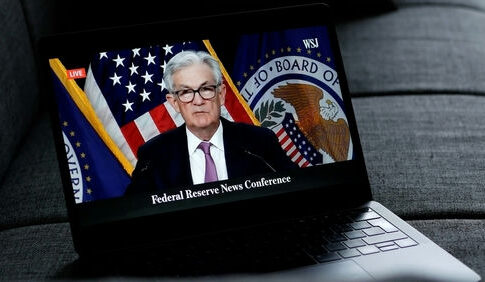The brewing conflict between President Donald Trump and Federal Reserve Chair Jerome Powell over the Fed’s costly renovations has escalated into a public showdown, leaving many questioning who will come out on top.
Trump and Powell’s Clash Over Renovation Costs
On July 24, 2025, President Trump and Federal Reserve Chair Jerome Powell clashed publicly during a visit to the Fed’s headquarters in Washington, D.C., over the ongoing renovation costs. This project, designed to modernize and secure the Fed’s aging infrastructure, has become a contentious issue, with Trump accusing the Fed of unnecessary spending. Powell, on the other hand, emphasized the renovations’ necessity for operational efficiency and security.
Trump has a well-documented history of opposing what he views as excessive federal spending, and he didn’t hold back during the on-camera confrontation. He questioned the scale and budget of the project, arguing that taxpayer money could be better spent elsewhere. This confrontation highlights a broader debate over the priorities of federal spending and the autonomy of independent agencies like the Federal Reserve.
The Stakes and Motivations
Trump’s stance is clear: he wants to reinforce his image as a fiscal conservative and cost-cutter, challenging bureaucratic excess wherever it may be found. For Powell and the Federal Reserve, the motivation is different. They argue that the renovations are crucial for maintaining the security and functionality of the Fed’s operations, pointing to the building’s aging infrastructure and evolving security requirements.
Congress, which oversees federal spending, is caught in the middle of this clash. They must balance fiscal oversight with maintaining the Federal Reserve’s independence. The public, as the ultimate funders of federal projects, are watching closely, demanding accountability and transparency in how their taxes are spent.
Implications of the Public Dispute
The public disagreement between Trump and Powell could have several implications. Politically, it may strain the relationship between the White House and the Federal Reserve, potentially impacting coordination on economic policy. Operationally, uncertainty over funding could delay renovation timelines, affecting Fed operations and employee safety.
Public perception is also at stake. This clash brings to the forefront debates over federal spending priorities and the independence of the Federal Reserve from political pressure. If the White House succeeds in curtailing the Fed’s spending, it could set a precedent for greater executive branch influence over independent agencies’ budgets.
Expert Opinions and Broader Effects
Experts in monetary policy warn that politicizing the Fed’s operational matters risks undermining its independence, which is crucial for effective monetary policy. Government accountability advocates emphasize the importance of cost oversight but caution against micromanagement that could hinder necessary upgrades.
Politically, the clash could embolden other leaders to challenge independent agencies’ budgets and autonomy, potentially reshaping the balance of power in federal governance. The stakes are high, and the outcome of this dispute could have lasting effects on how independent agencies operate within the government framework.


